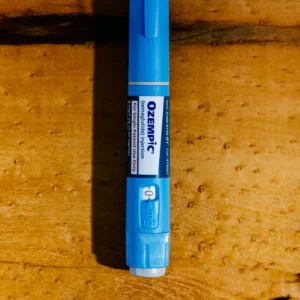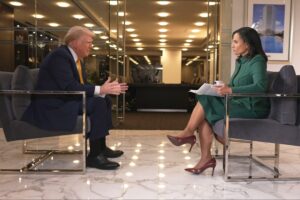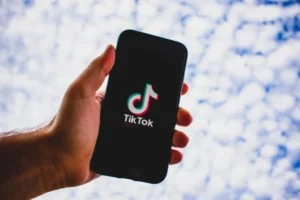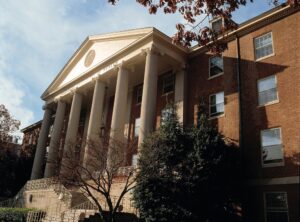Mr. Musk’s rockets and presence have helped shape, and reshape, the culture and politics of Cameron County in South Texas.
By Jenet Marlina | Dec 02, 2024 Updated 03:30 p.m. ET
The story of the political transformation of Cameron County, a majority-Hispanic border community at the southernmost tip of Texas, began with the arrival of a billionaire.
His name wasn’t Donald J. Trump. It was Elon Musk.
More than a decade ago, Mr. Musk brought his private space company, SpaceX, to Cameron County, where the blasts from his rocket testing and launching site on Boca Chica Beach rattle homes for miles. His mark is now everywhere. And his face, too.
Downtown, in the county seat of Brownsville, the old culture — part Mexican, part American, part Tejano — clashes with the new: Images of space, astronauts and Mr. Musk adorn buildings that date to the early 1900s, blocks from the southern border. Along the Gulf Coast marshes on the road to his Starbase launch site, a giant bust of Mr. Musk keeps watch over Cameron County’s nearly 430,000 residents and the occasional wayward hog, the world’s richest man honored like a king in one of the poorest counties in America.
Such a tribute would be a mere curiosity were it not for what happened here on Nov. 5.
Mr. Trump did something no Republican has done in 20 years: He flipped Cameron County. Mr. Trump won the county with 53 percent of the vote, the first time a Republican presidential candidate claimed victory here since George W. Bush, the former Texas governor and then the president, in 2004. It was one of a string of largely blue-collar Hispanic Democratic strongholds across South Texas where Mr. Trump made major inroads.
Mr. Trump didn’t have to campaign very hard in Cameron County. Mr. Musk did the hard work for him, by slowly and subtly changing the culture, the landscape, the economy and, finally, the politics of Cameron County over the span of years.
Interviews with more than two dozen voters, local leaders and elected officials from both parties and regional experts show that Mr. Trump’s top surrogate brought jobs, tourism and a hard-line “America First” opposition to illegal immigration to Cameron County, all of which played a role in turning it from blue to red. Mr. Musk opened a door Mr. Trump walked through on Election Day.
“Elon has pretty much dictated all that happens out here,” said Deborah Bell, who is the chairwoman of the Cameron County Republican Party and has watched Mr. Musk develop a region her family has been farming for more than a century. She added, “It still is a love-hate relationship with those of us that live out here.”


There were many factors behind Mr. Trump’s success in the region, and the voters and officials said no one person was responsible for the Trump wave in the county. But the interviews showed how Mr. Musk’s influence was far-reaching and amorphous, turning him from a tech entrepreneur with a local connection into a harbinger of Trumpism in a working-class and Latino community.
Mr. Musk’s imprint on the county is a jumble of contradictions.
Many oil and gas workers in the region oppose the electric car industry, but they adore Mr. Musk and his Teslas. Mr. Musk, an immigrant from South Africa, publicly bashes illegal immigration, a message that resonated in a place where many families can trace their immigrant roots going back generations. His ventures helped stimulate jobs and tourism, but also widened the region’s income inequality and feelings of disenfranchisement, fueling the working-class anger that made Mr. Trump so appealing to some. His no-holds-barred macho persona reminded some Hispanic voters of the type of Latin American strongman known as a caudillo, an image that inspired not disdain but confidence.
Mr. Musk, who has bought several mansions in Austin, Texas, has said his primary home is a small three-bedroom property in Cameron County on Weems Street, which he said he officially changed to Memes Street in March (county property records appear to confirm this). On Election Day, he showed up at a polling site at a social services center in Brownsville, where he said he cast his ballot.
Poll workers did more than simply notice him. They posed for a picture with him that he posted on X.
Bust in the brush

On a recent Saturday afternoon, the road to Starbase felt more earthly than interstellar.
In the wetlands several miles outside Brownsville, the Musk bust attracted onlookers, as it usually does. When the nearly nine-foot-tall sculpture by a Parisian artist first arrived, it was hauled, naturally, by a black Tesla Cybertruck. As Musk tributes go, this one is a homage of a homage, the misshapen head and eyes sculpted to resemble a piece of fan art that had gone viral.
On this Saturday, Czech tourists paused to gaze at it. A friendly little hog approached the visitors, sniffing them and wagging its tail. Nearby, Mr. Musk’s face could be seen in murals of the same fan art on cinder-block walls.
Closer to Starbase, the road to the facility was bustling as employees and contractors left their afternoon shifts and towed cargo in and out. Tech bros and tourists sped by rows of housing on scooters. Workers in highlighter-bright construction vests took breaks, gathering around taco trucks and picnic tables on bright green AstroTurf.
The scene around Starbase was rugged, hipster, surreally futuristic — “The Jetsons” in the Texas brush, oil boomtown meets South by Southwest by the border. At a restaurant playing indie and electronica tracks, a sign above the bar read “Occupy Mars” in neon red lights. A few local businessmen in cowboy hats and boots walked in, with some apprehension; the restaurant is open only to SpaceX employees.
Near a large white neon SpaceX sign, five women tried to take a group selfie as a coyote scrambled past in the distance. The friends live in the area and had reunited at a funeral earlier that day after not seeing one another in years. On a whim, they decided to check out the place transforming their region.
All the women had been raised in Democratic families. But all except one said they had voted for Mr. Trump, citing their concerns about the economy and the migrants who crossed into their county in record numbers last year.


“Recently, they have been going a little bit in too many directions that are away from these values,” Yolanda Perales, 64, a retired nurse, said of Democrats. She said she believed Republicans were more focused on lowering the costs of living and health care.
Sonia Rodriguez, 71, a retired law office administrator, was the lone Democrat among the friends. She had voted for Vice President Kamala Harris, she said, because she was outraged by Mr. Trump’s meanspirited rhetoric and persona. But even she expressed doubts about her allegiance to the party and was open to the changes that might come in a second Trump term.
“We hope that what he’ll bring to the table is to help the economy and help people that are really struggling down here,” Ms. Rodriguez said.
When the region was competing with Florida and Puerto Rico to lure SpaceX in 2012, Gilberto Salinas, then executive vice president of the Brownsville Economic Development Council, called it “money from the heavens.”
City and state officials promoted the project as an imminent job creator for border families. School leaders and teachers believed it would fit their efforts to expand science, technology and math courses at public schools. The county’s poverty rate of 22.6 percent exceeds the rate of numerous counties in America, according to census figures, including Atlanta’s Fulton County (12.7), Los Angeles (13.9) and Miami-Dade (14.5).

Business leaders and local officials now say Mr. Musk’s ventures have been part of a rush of economic development that has generated millions of dollars in sales and tourism for the county, as people from all over the globe descend upon a region known as the Rio Grande Valley for SpaceX launches. Even Mr. Trump attended one recently.
More than 3,400 full-time employee and contractor jobs are directly tied to Starbase, and more than 21,400 other jobs are indirectly connected to the facility, according to a report from Cameron County’s top elected official, Eddie Treviño Jr., the county judge. Many of those positions, including listings for pipe fitters and welders, do not require a college degree yet still offer higher wages than many other jobs in the area, workers and community leaders said. But a few also offered anecdotal stories about the high turnover rate because of what they said were long hours and hard working conditions.
That fast growth has helped propel rent and housing prices for longtime residents, even as the county’s median income has not kept up the pace. The economic transformation helped alter the politics of the Rio Grande Valley, regional experts said: As some working-class Hispanic families moved into the middle class, they became more protective of their financial interests and started voting Republican.
“There is this aspiration, this idea that he is going to Mars and taking Cameron County, one of the poorest in the United States, with him,” said Guadalupe Correa-Cabrera, a political science professor at George Mason University who has studied the border region.
‘Avatar of everything’

Several leaders and voters from both parties here agree on one thing: The political swings could be more temporary than permanent.
“I think it’s a one-time thing,” said Juanita Castillo, 63, an independent who leans Democratic and who retired early as a federal immigration official because she could not endure the chaos of the first Trump administration.
Jared Hockema, who has served as chairman of the county Democratic Party since 2018, took solace in the past. After Republicans won the county with Mr. Bush at the top of the ticket back in 2004, Mr. Hockema pointed out, they lost it four years later to Barack Obama. Senator Ted Cruz, a Republican, may have defeated Representative Colin Allred and won re-election on Nov. 5, but Mr. Allred, a Democrat, outperformed Mr. Cruz in Cameron County, as well as in nearby Hidalgo County.
Mr. Hockema said Mr. Musk could not be credited for all of the county’s economic growth, as much as he could not be blamed for all of its pitfalls. But he said he saw Mr. Musk as an “avatar of everything that is right and wrong in our society.”

Chuck Vieh, a Republican who won a down-ballot race in the county for justice of the peace, said he worked hard during the campaign to meet people where they were, shaking hands at restaurants and outfitting his truck with flags and campaign signs. But he also said he tried to disassociate himself from Mr. Trump and stick to local issues while talking up Democrats’ failures after years in leadership.
“I’m running for justice of the peace,” he said he would tell voters. “I can marry you or I can bury you.” Many of those conversations veered back to the same complaints, however: how hard it was to survive on minimum wage, how hungry they were for change.








Be First to Comment